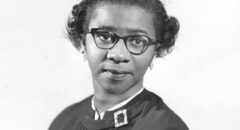
Effective health promotion and prevention measures aren’t something that women should begin worrying about when they reach a certain age. Rather, they should begin during early adulthood, then progressively continue through age, 30, 40, 60 and beyond.
Healthcare Tips for Women in Their 20s
Even though the 20s are not commonly known as the years that most women are overly concerned with health issues, it’s important to avoid taking one’s health for granted. The 20s are a time to lay the foundation for good health habits later in life. Ignoring your diet, sleep habits or the need for regular exercise may not make an obvious difference today, but it can catch up with you down the road. Important lifestyle and diet choices during your 20s should include:
- Engage in a minimum of 2.5 hours per week of moderate-intensity aerobic activity (according to Harvard Health).
- Drink at least 8 glasses of water per day
- Make healthy homemade meals at least 60% of the time
- Have a meatless meal at least once each week
- Have a yearly physical and dental exam
- See your gynecologist regularly
- Strengthen your personal support network (particularly if you have recently moved away from home for a romantic relationship)
- Practice safe sex (women in their 20s are more likely to get a sexually transmitted disease)
RELATED: Pregnancy After 35: 11 Tips For A Healthy Childbirth
Healthcare Tips for Women in Their 30s
Women in their 30s are in their prime childbearing years, and Black women have a higher incidence of maternal mortality (death), infant mortality and low birth weight babies.
It’s essential to be in an optimal state of health to have a healthy baby. Eating a healthy diet and employing a regular exercise routine are imperative during a woman’s 30s. Be sure to consult with your obstetrician if you are pregnant, or another healthcare provider, before starting any type of exercise regime.
Although Black women are less likely to get breast cancer than other racial groups, studies show when they do, they often get breast cancer earlier. Black women are also 30 percent more likely to get triple-negative breast cancer (a type of breast cancer that has fewer treatment options). Early breast cancer detection can save lives. Essential health tips for women in their 30s include:
- Have a baseline mammogram at age 35 (if you have breast cancer that runs in your family) or otherwise at age 40
- Do monthly breast self-exams
- Have an annual physical exam, including a clinical breast exam
- Get around 7 hours of restful sleep each night
- Continue with a healthy diet
- Continue getting regular health checkups
- Continue with safe sex practices
- Commit to a regular exercise routine (if you haven’t already done so)
RELATED: Taking the Heat Off: Home Remedies for Menopause Relief
Healthcare Tips for Women in Their 40s
During your 40s, it’s often a time for career advancement and raising teenagers; it’s also a time when women commonly let their health priorities slide. Being busy with career and family during which there never seems to be enough time can be a recipe for skipping normal health screenings such as a regular Pap smear. Important health tips for women in their 40s include:








